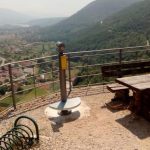Algae made it from the sea to the Cetina river and adapted to the life there, reports Dalmacija News.
An international team of sceintists, leb by Ph.D. Ante Žuljević from Split institute of Oceanography and Fisheries discovered a type of coralline algae, that has come out of the sea to the river and adapt to the life there.Their findings were presented at the prestigious journal Scientific Report from the Nature group and the algae got its name after the Cetina river, where it was discovered – Pneophyllum cetinaensis. Among Croatian experts, Italian, Spanish, French and Belgian scientists participated in the research.
To explain what the coralline algae actually is, we can say, that they are among the most important components of the shallow sea bottom. One of their distinguishing features is, the incorporation of calcium carbonate in the body of the algae. Therefore, they are strong, resistant to most herbivore organisms, essential architectural types and when they die, they contribute to the deposition of ash at the seafloor.
The evolutionary transition from sea to fresh water is an extremely rare event. It is believed that there were only about 40 crossings of snails from the sea to fresnwater species, but they still diverged into more than four thousand species. In addition, most of the crossings occurred in ancient geological times. All this makes Pneophyllum cetinaensis special among algae species in general.
“For the last two years, an international team worked on a study about a very special algae that belongs to the so-called coralline algae. There are more than 700 types of coralline algae to live in the sea. The Cetina algae is the first and so far the only coralline algae, which lives in freshwater. What is interesting is, that the evolutionary transitions from sea to freshwater is extremely rare and that this shift occured just in the Cetina river. The reason for this were certainly biological and chemical characteristics of the river. It seems, that the relocation of the one coralline algae, which incorporates calcium carbonate into her tissue could only happen in a karst river. All the other rivers of the world have not satisfactory chemical conditions to be able to support an algae from the coralline group”, said about this discovery Ph.D. Ante Žuljević.
As he said, the algae relocated from the sea to the river before 20.000 to 100.000 years. This is what makes it unique. Most crossings occurred in geologically ancient times.
Read the whole article (in Croatian) here.








